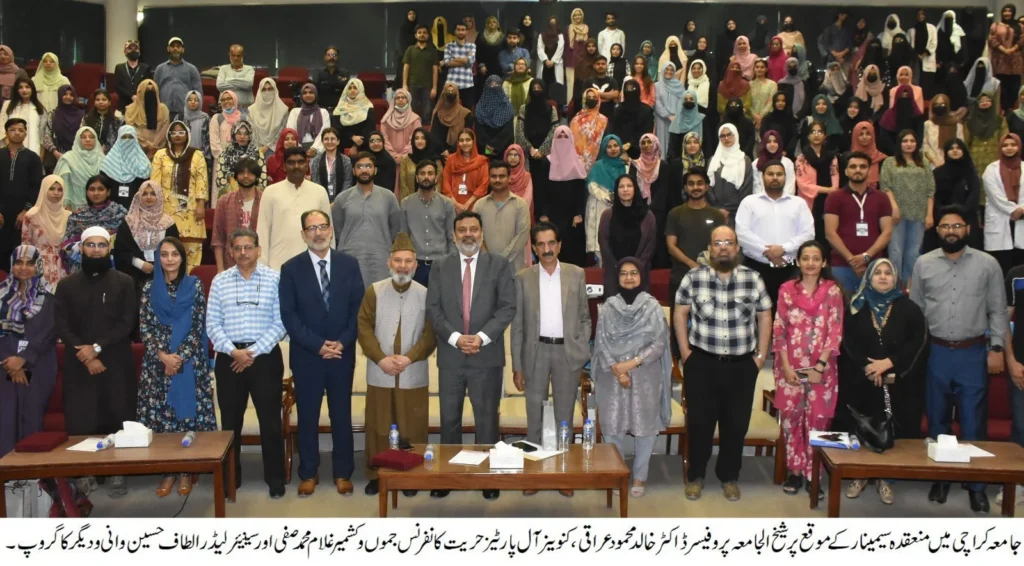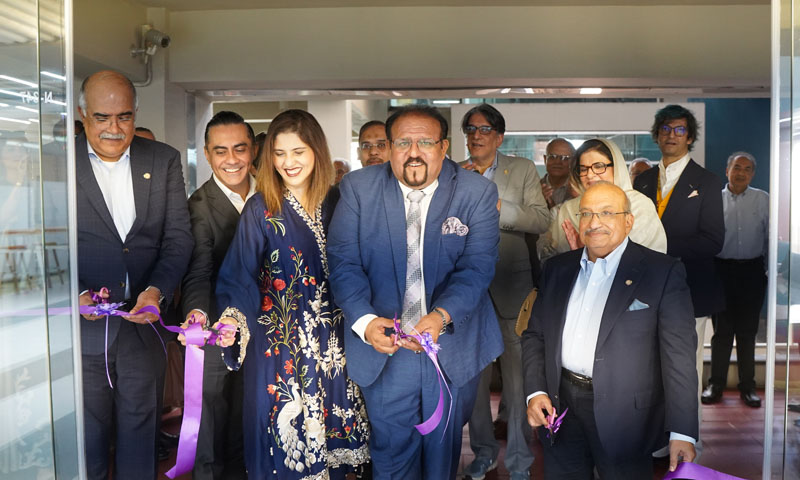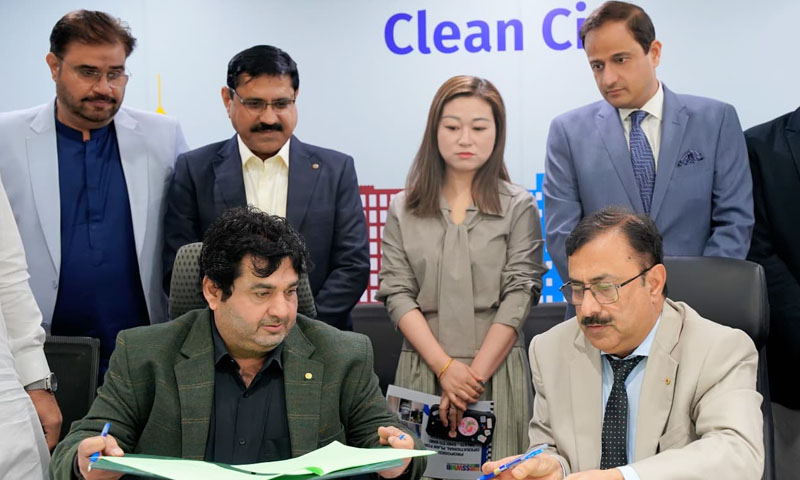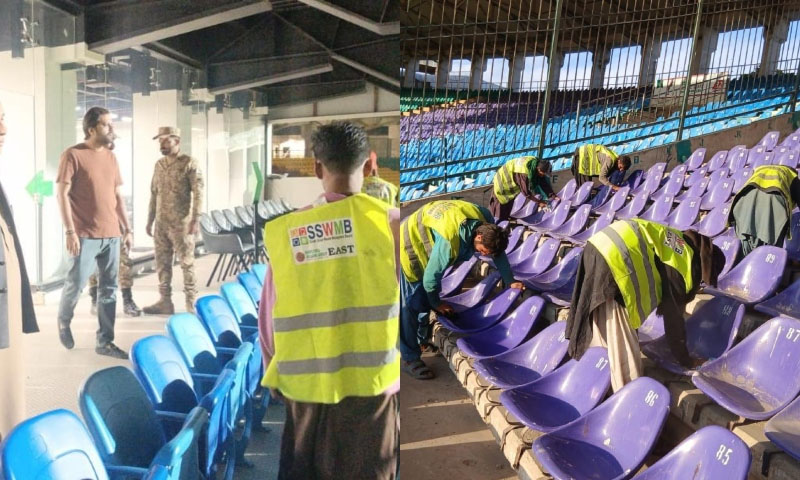- Web Desk
- Jan 12, 2026
Indian forces have martyred over 500,000 Kashmir issue, says Convener APHC Safi
-

- Web Desk Karachi
- Feb 26, 2025

KARACHI: The Office of the Students’ Advisor of the University of Karachi arranged a seminar on the ‘impact of colonialism on Kashmir’s identity and territorial dispute’ at the KU’s Jinnah Auditorium of the Dr A. Q, Khan Institute of Biotechnology and Genetic Engineering on Monday.
The Convener of All Parties Hurriyet Conference, Jammu and Kashmir Ghulam Muhammad Safi, and the senior leader of APHC Altaf Hussain Wani informed the audience about India’s brutal behavior and torture of children, women, elders, and youngsters in detail.
The APHC Convener Ghulam Mohammad Safi during his address stated that Quaid-e-Azam Mohammad Ali Jinnah had declared Kashmir as the jugular vein of Pakistan. The Founder of Pakistan had supported the Kashmir cause even before the independence of Pakistan.
Ghulam Safi said while a human being can live without eyes and even in a state of disability, no person can survive if their jugular vein is severed and that is why Pakistan is incomplete without Kashmir.
He shared that according to the Partition Plan, Muslim-majority areas were supposed to be part of Pakistan, and non-Muslim-majority areas were to become part of India. However, this never happened as both Hindus and the British wanted to undermine the philosophy of Quaid-e-Azam Mohammad Ali Jinnah’s Two-Nation Theory and make sure that the Muslim-majority area of Jammu and Kashmir should become a part of India.
Books of Jamaat-e-Islami founder Abul Ala Maududi seized in Kashmir
Ghulam Mohammad Safi added that since 1947, more than 500,000 people have been martyred over the Kashmir issue, yet the problem remains unresolved. India’s obstinacy means it rejects all proposals from the international community, insisting that its occupation is sufficient.
He highlighted the importance of policy consistency, noting that one reason for the ongoing Kashmir issue is the lack of continuity in Pakistan’s policies, whereas India’s policies have been consistent.
“India falsely claims that Jammu and Kashmir is its integral part but has maintained the same stance throughout. Their leaders, including the President and Prime Minister, consistently state that Kashmir is their integral part, despite being wrong. In contrast, our position is correct, advocating that the people of Kashmir should decide their own future. If they choose to merge with Pakistan through a referendum, we will respect their decision.”
Ghulam Safi mentioned that since 1989, they have given India a tough time on political, diplomatic, and military fronts, which India blames on Pakistan, claiming its involvement. Our struggle is for the right to self-determination, while India desires a graveyard-like silence.
Addressing students, he urged them to raise their voices for Kashmiri rights, similar to how people worldwide advocate for Palestinian rights. He emphasized that it is both a duty and a debt for justice-loving individuals everywhere to support the cause of Kashmir.
Safi condemned India’s methods of killing young Kashmiris, violating the dignity of women, and forcibly displacing people from Kashmir, likening it to how Israel displaced Palestinians and seized their lands. He stated that India’s objective in Jammu and Kashmir is not to see Muslims but to replace Urdu with Hindi and to see the Indian flag instead of the Pakistani flag in Kashmir.
Another speaker, senior APHC leader Altaf Hussain Wanis shared that the current strategy of the Indian government in Jammu and Kashmir is to render the populace landless, unemployed, and homeless, aiming to coerce them into submission.
He mentioned that when the China-Pakistan Economic Corridor (CPEC) project commenced in Pakistan, India preemptively initiated PhD programs on CPEC in various universities to convey to the West that it was against their interests. Consequently, it is the duty of every Pakistani and academic to focus on India’s fault lines, one of which is Kashmir.
He urged that each university in Pakistan should engage in discussions, write about the true cause of the Kashmir issue, and establish research centers dedicated to Kashmir. Altaf Hussain Wani remarked that they do not recognize the recent elections in Kashmir, as these elections were conducted under the shadow of guns with the presence of one million troops.
“On August 5, 2019, India revoked the special status of Kashmir with a single stroke of a pen, stripping the Kashmiri people of their identity.”
He affirmed that they will not compromise and are determined to continue their struggle, knowing that India is aware that the struggle in Kashmir will persist. Despite all its military might, India has failed to suppress the freedom movement in Kashmir and has propagated a web of lies.
He emphasized that just as people worldwide support Palestinian rights, justice-loving individuals everywhere should raise their voices in support of Kashmiri rights. This is both a duty and a debt.
Wani condemned India’s tactics of killing young Kashmiris, violating the dignity of women, and forcibly displacing people from Kashmir, likening it to how Israel displaced Palestinians and seized their lands.
He stated that India’s objective in Jammu and Kashmir is to replace Muslims with Hindus and Urdu with Hindi and to see the Indian flag instead of the Pakistani flag in Kashmir.
On this occasion, the KU Vice Chancellor Professor Dr Khalid Mahmood Iraqi informed the audience that that the Kashmir issue is not merely a matter of land or territory but a concern for 10 million people, their rights, self-determination, and freedom.
“Unfortunately, we do not see international standards being applied to the Kashmir issue. We should raise our voices for justice without worrying about the consequences.”
He paid tribute to the Kashmiri mothers who tirelessly sacrificed their children for the attainment of freedom. The KU VC Professor Dr Khalid Iraqi mentioned that the atrocities committed by India in Kashmir are a disgrace to humanity. He observed that the Kashmir issue is not only a problem for Muslims but a human rights issue. It is essential to educate our younger generation about the history of Jammu and Kashmir and its strategic importance to Pakistan.
He called on every Pakistani and academic to focus on India’s fault lines, with Kashmir being one of them. He urged that every university in Pakistan should engage in discussions, write about the true cause of the Kashmir issue, and establish research centers dedicated to Kashmir.




